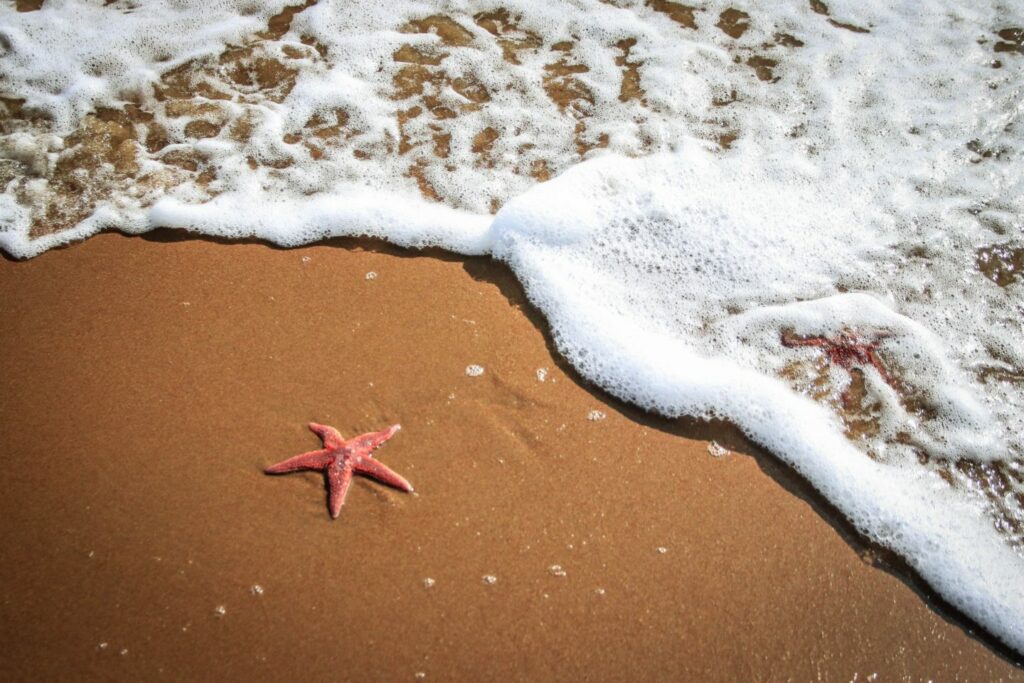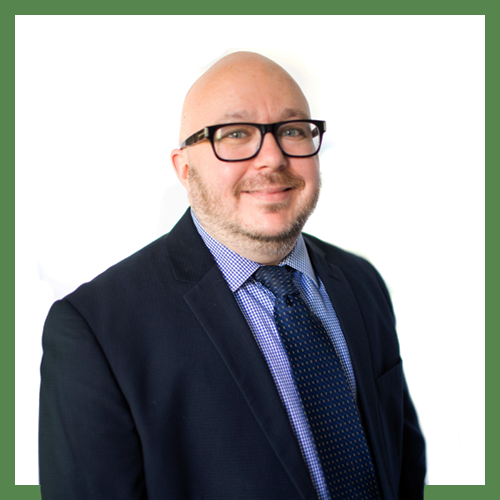COLE THALER | June 29, 2020

In the parable of the starfish, we’re reminded not to become overwhelmed with the enormity of the problem, and to focus on helping the person in front of us. But does this create lasting change?
Have you heard the starfish story? I’ve told it to attorneys countless times, to impress upon them the power of pro bono representation.
In the story, a child walks along a beach covered with thousands of starfish that have washed ashore. As a stranger watches him, the child picks up a starfish every few steps and throws it back into the ocean. When their paths cross, the adult asks why the child bothers – he couldn’t possibly make a difference to all of the starfish on the sand. The child picks up another starfish, tosses it into the water, and says, “I made a difference to that one.”

The scale of the problems we confront is so daunting: poverty, racial bias, generations of neighborhood disinvestment.
What a perfect metaphor for the difference that a pro bono attorney can make. The scale of the problems we confront is so daunting: poverty, racial bias, generations of neighborhood disinvestment. But one lawyer can take one case – can write one demand letter or file one lawsuit – and lift a family out of a bad situation, providing a fresh start and positive momentum. The starfish story reminds us not to become overwhelmed with the enormity of the problem, but instead to focus on helping the person in front of us.
Because I’ve told this story so often and love it so much, David Brooks’ column, “The Neighborhood Is the Unit of Change” (New York Times, Oct. 18, 2018), caught my attention.
Mr. Brooks takes issue with the starfish model of helping people. Helping one person at a time – with a scholarship, a mentorship, an attorney – is “not really changing the structures and systems that shape lives.”

“It could be that the neighborhood, not the individual, is the essential unit of social change.”
Instead, Mr. Brooks writes:
It could be that the neighborhood, not the individual, is the essential unit of social change. If you’re trying to improve lives, maybe you have to think about changing many elements of a single neighborhood, in a systematic way, at a steady pace.
As support for his hypothesis, Mr. Brooks points to data showing that people growing up in nearby neighborhoods can have drastically different life outcomes, including in earning capacity and life expectancy. He attributes this to the presence or absence of social connections: the bonds that can nurture and preserve well-being among neighbors.
In 2015, the Robert Wood Johnson Foundation published research findings that came to similar conclusions about the significance of neighborhoods. Noting that life expectancies are roughly 10 years lower in high-poverty neighborhoods compared to low-poverty neighborhoods, including in Atlanta, the Foundation identified several contributing factors, such as poor quality housing; limited access to healthcare; and fewer quality jobs and schools.

Through our Standing with Our Neighbors (SWON) program, launched in 2016, we also seek to make change on the neighborhood level.
AVLF will not stop pairing pro bono attorneys with low-income clients. We believe in the power of standing with an individual client, so that person does not have to navigate the legal system alone.
But through our Standing with Our Neighbors (SWON) program, launched in 2016, we also seek to make change on the neighborhood level. To that end, we have embedded attorneys and community advocates in nine schools in Thomasville Heights, Peoplestown, Vine City, and other Atlanta neighborhoods. There, we build relationships – with community activists, teachers, social workers, pastors, librarians. And we listen carefully to neighborhood residents to learn what they need to thrive — and what’s in their way.

Neighborhood-based work allows AVLF to see patterns that we otherwise might have missed.
Granted, doing this work has been more difficult in the age of COVID-19, when we can’t sit down to talk with a group of moms in someone’s living room. But we are doing our best with the tools we have. We’re taking cases, advocating for clients, networking with partners, and doing what we can to foster those crucial social connections.
Neighborhood-based work allows AVLF to see patterns that we otherwise might have missed. For example, from our place in the community, it’s easier to figure out which landlords are the most neglectful. And we are learning, more with each passing month, how best to support the residents in building the power of their own neighborhoods.
Returning a stranded starfish to the sea is easier and faster than changing the tides. But both kinds of work are necessary as we strive for a more just future.
We invite you to consider becoming a monthly supporter of AVLF. Your monthly contribution helps us provide sustained services throughout the COVID-19 crisis.

Cole Thaler
Co-Director, Safe & Stable Homes Project
Check out more from this author.
Cole serves as the co-director of AVLF’s Safe and Stable Homes Project. He supervises the Saturday Lawyer Program and the Eviction Defense Program.
Before joining AVLF, Cole was a supervising staff attorney with Georgia Legal Services Program, where he represented low-income rural Georgians in a variety of civil matters. Previously, Cole worked for Lambda Legal, a national legal organization that works on behalf of lesbians, gay men, bisexuals, transgender people, and those with HIV. Cole attended Williams College before receiving his J.D. from Northeastern University School of Law. He shares his home with two rescue dogs, three rescue cats, and husband.